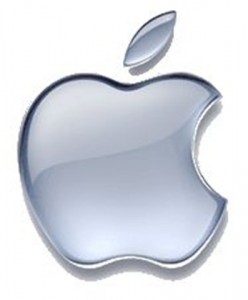 There's an interesting article in USA Today about Apple's future. The author, Michael Wolff, cites several reasons for asserting that Apple is on the downside of maturity. I figured it's been a while since I've posted insights on Apple, and there's a lesson for small and mid-market companies, so I'd do a little prognostication.
There's an interesting article in USA Today about Apple's future. The author, Michael Wolff, cites several reasons for asserting that Apple is on the downside of maturity. I figured it's been a while since I've posted insights on Apple, and there's a lesson for small and mid-market companies, so I'd do a little prognostication.
Wolfe cites four main points for his conclusion:
- Its phone market, tablet market and content-selling business — iTunes — until recently practical monopolies, have become, as if overnight, hugely competitive fields. Management, in this strictly top-down company, is suddenly in dramatic flux. And, with its great map app debacle, Apple's customers are starting to rise up against its famous closed-system policies.
- And yet, befitting a company whose real genius is design (i.e. illusion), there is something ephemeral about its position. It has not so much created monopolies — the secret of generational success — as opened new markets for everyone. These markets — smartphones, tablets, digital content distribution — have become the dominant ones in the technology business. There's no place else for a big player to go. And in the case of phones and tablets, all you have, in the end, are fairly basic machines. It's a game of price and features and shrinking margin.
- The smartphone market — until recently split between an ever-growing iPhone dominance, a stalwart BlackBerry and a divided Android field — is now, increasingly, an iPhone vs. Samsung world. The difference between one dominant player and a collection of would-be players and two clear alternatives is a vast one. Samsung's consumer electronics marketing clout — and its breathtaking advertising budget — is even large enough to go toe-to-toe with Apple's brand mythology and ubiquity.
- And now a backlash against the products. It is an extraordinary part of the Apple marketing dynamic that a great number of consumers buy Apple while resenting it, too. Apple is a peer-pressure buy, often at the expense of functionality and, even, common sense. The underlying fury at Apple's authoritarian product control and disregard of its consumers finally broke into the open with its decision to abandon Google Maps.
- I find it fascinating the Wolff equates design to "illusion." That observation alone clearly demonstrates that Wolff (the author of several books on technology) is looking at Apple through the lens of a technologist, and not through the lens of Apple's customer.
- Wolff is looking at the market from the standpoint of volume - not profit. In other portions of the article he refers to Apple's degrading market share. While Apple is losing "market share", its share of the profits continues to increase. While that is certainly no guarantee of success in the future, it's the focus on volume over profits that gets most technology companies in trouble (a la Dell, IBM, HP to name just a few). So yes, Samsung is picking up lots of share (and spending ungodly amounts on advertising - some of which is quite entertaining) it's not denting Apple's profit.
- Wolff's final point is partially legitimate. While Apple is maniacal in focusing and understanding its core customer, it's not good at listening. It's confident, even arrogant, in its actions, and that is always a risk. While Apple did screw up Maps, it's not the first time its done so, and botched the follow up (antennae-gate anyone?). To date, Apple has always quickly recovered by staying focused on its core.
- Apple has succeeded because it's maniacally clear on who their customer really is. Simply put, Apple knows who they want to be a hero to, and who they don't worry much about.
- Apple has always focused on their why, not their what.
- Since Jobs returned Apple has been extremely focused on what it does best.
If Apple stays true to those three points, my bet is with them (and every business that follows these rules). If they violate them, then yes, Apple's days of dominance are numbered, but not because someone else is building better products.

 Doug Davidoff
Doug Davidoff